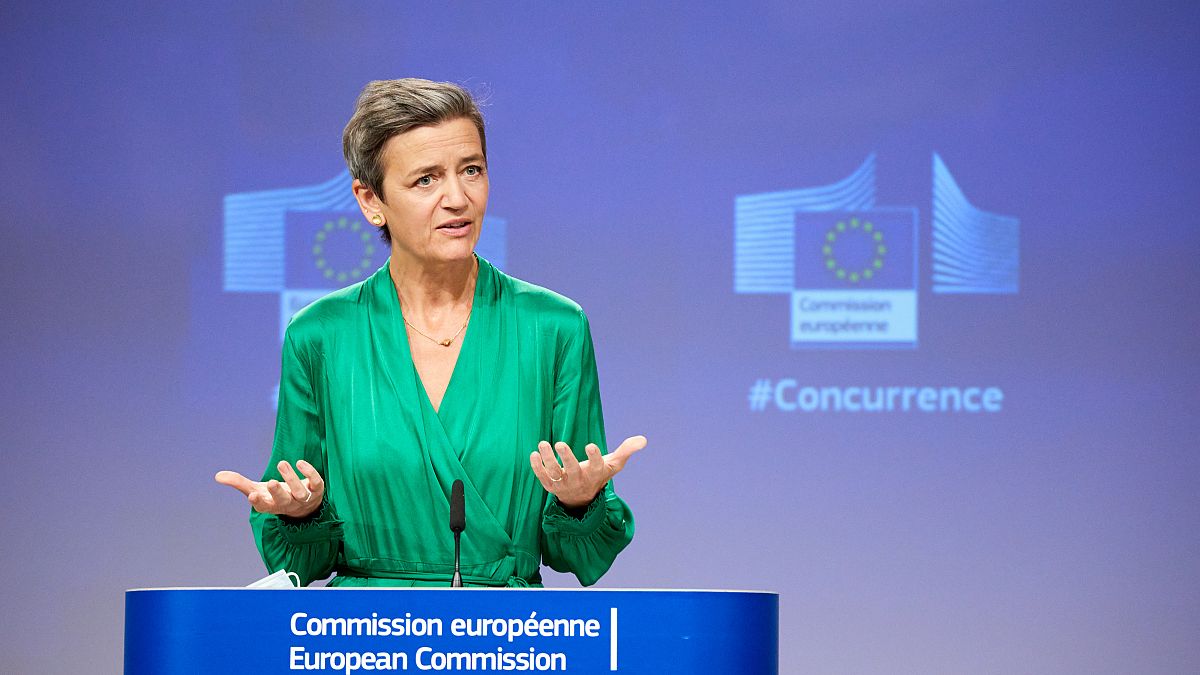The European Commission accuses Daimler, BMW and Volkswagen of creating a cartel and illegally colluding in the area of nitrogen oxide cleaning.
The European Commission has slapped two of Germany's largest carmakers – Volkswagen and BMW – with a fine of more than €875 million, accusing the companies of forming a cartel and illegally colluding to restrict competition in emission-cleaning technology for diesel cars.
The Volkswagen group, which includes Volkswagen, Audi and Porsche, agreed to pay €502,362,000, while BMW settled for €372,827,000.
Daimler, also named as part of the scheme, received full immunity and was exempted from retaliation because it informed Brussels about the existence of the cartel. The company could have faced a fine of €727 million if it had not come forward with the revelations.
Brussels found that the multinationals worked together for over five years (from June 2009 to October 2014) in order to avoid fair competition in the EU's single market.
The executive says the cartel held "regular technical meetings" to discuss the development of new technology that eliminates harmful nitrogen oxide emissions from diesel cars.
The companies agreed they would not use the technology at its full potential and that none of them would aim at cleaning above the minimum standard required by EU emissions standards.
This illegal agreement among the manufacturers eliminated the threat that one of them would clean better than any of the others, an artificial arrangement that Brussels considers distorted fair competition and damaged innovation.
"Competition and innovation on managing car pollution are essential for Europe to meet our ambitious Green Deal objectives. And this decision shows that we will not hesitate to take action against all forms of cartel conduct putting in jeopardy this goal," said Margrethe Vestager, the Commission's vice-president in charge of competition, on Thursday morning while announcing the punitive measures.
This is the first time the Commission finds that cooperation on technical elements, as opposed to price fixing or market sharing, amounts to cartel behaviour, Vestager explained.
Because of the novelty of this antitrust investigation, the Commission offered a reduction in the fines. Additionally, Volkswagen and BMW enjoyed a 10% cut because they agreed to settle the case instead of litigation. Volkswagen also received a 45% "leniency discount" due to its cooperation and the voluntary evidence provided during the proceedings.
"The BMW Group made it clear from the start of the antitrust proceedings that it considered the allegations made at that time to be exaggerated and unjustified. For this reason, unlike the other competitors involved, the company did not prematurely admit its guilt by applying for leniency," BMW said in a statement.
The company celebrated that "no suspicion of unlawful defeat devices" had been found in its products and warned the Commission was entering "uncharted territory" with the novel case.
The fines appear to be largely symbolic given the enormous revenue that the three carmakers make every year.
The Volkswagen groups is ranked seventh in the Fortune Global 500 list of the world's largest companies, with revenue exceeding €222 billion, putting the firm ahead of Amazon and Toyota. Meanwhile, last year Daimler made €154 billion in revenue and BMW netted almost €99 billion.
"The dividing line is clear: companies must not coordinate their behaviour to limit the full potential of any type of technology," Vestager concluded.
"Companies must not restrict their competition on performing better than what is required by law and they should continue to compete to the benefit of the consumers. Agreeing not to do so is simply illegal."
The Commission emphasised that the antitrust investigation did not look into whether or how the carmakers were complying with EU car emissions standards.
The executive also clarified the case was not related in any way to the diesel emissions scandal, also known as "dieselgate", which is being prosecuted in various national courts around the world.
